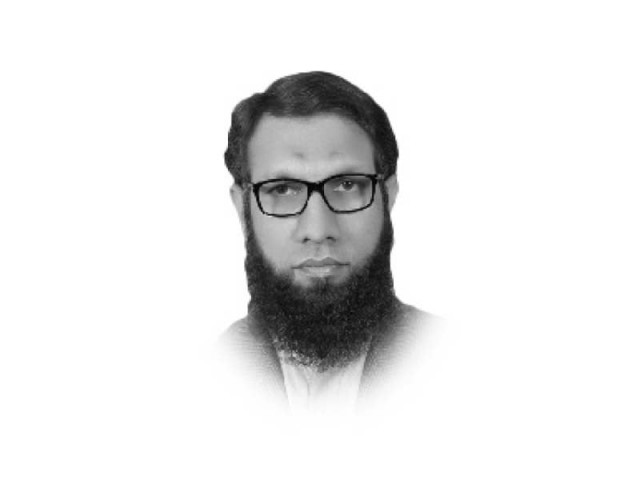Marketing strategy of extremists
The crisis we face is not merely one of security; it is epistemological

In the rugged terrains of Pakistan's tribal belt, and increasingly in the digital corridors of our cities, extremist groups like the Tehreek-e-Taliban Pakistan (TTP) are running what is arguably one of the most sophisticated marketing campaigns of our time. They are not just peddling guns and violence - they are selling an idea, a myth, a cause. Their methods are psychological, symbolic and deeply emotive. And disturbingly effective.
Let us not fool ourselves. Extremist groups do not rise in a vacuum. They carefully curate a narrative that speaks to alienation, pain, and a deep sense of historical grievance. And in doing so, they market four powerful myths to disillusioned youth.
They glorify the past. The lost grandeur of the Islamic world - its empires, caliphates and conquests - is repackaged as a paradise lost, stolen by colonialism and corruption. This myth creates a romanticised sense of victimhood, where Muslims are always righteous but perpetually wronged. History becomes a blunt instrument to stoke resentment, not a mirror for introspection. What is conveniently ignored is that the decline of the Muslim world was not solely due to external conquest, but internal stagnation - moral, intellectual and political. There is no room in their narrative for self-critique, only blame.
They exploit unresolved political traumas. Palestine, Kashmir, Iraq, Syria - these wounds are not merely referenced, they are weaponised. Young people are told that the world is silent to Muslim suffering, that dialogue has failed, and that only violence can bring justice. Groups like TTP use these crises to create a transnational victimhood complex, even when they have neither the intent nor capacity to help these causes. Their interest is symbolic, not substantive.
They sell utopia. In a world riddled with corruption, poverty and moral ambiguity, extremists offer a seductive promise: a pure Islamic state, governed by Sharia, where everything will magically fall into place. The message is deceptively simple - impose divine law, and paradise will descend. But their version of Sharia is often a narrow, tribal interpretation far removed from Islamic legal pluralism or ethical dynamism. When tested in practice - as seen in Taliban-ruled Afghanistan - it results in authoritarianism cloaked in religiosity, not justice or prosperity.
They amplify local deprivations. In places like KP and Balochistan, the state's neglect has bred real anger. Political exclusion, economic marginalisation and lack of basic services have left generations feeling abandoned. Extremists step into this vacuum, not as ideologues, but as pseudo-liberators. They present themselves as defenders of the poor and the wronged, even as they destroy schools, murder dissenters and enforce brutal rule. They are arsonists posing as firefighters.
What makes all this particularly insidious is that their campaign is wrapped not just in ideology, but in emotion - nostalgia, grievance, identity and rage. And it is made even more effective by the vacuum left by the state: a failure to respond with a counter-narrative rooted in dignity, justice and opportunity. While extremist groups offer a sense of belonging, mission and moral clarity, the state continues to offer bureaucracy, neglect and silence.
The state's over-reliance on brute force - military operations, mass arrests, short-term deals - will not kill the idea that fuels extremism. You cannot drone away a narrative. You cannot shoot an ideology. What is needed is a deep, multi-layered response: equitable development in neglected regions; authentic political inclusion; an education system that prioritises ethics and inquiry over rote learning and blind obedience; and above all, reclaiming Islamic thought from the ideological warlords who have hijacked it.
The crisis we face is not merely one of security; it is epistemological. It is about who gets to define Islam, what justice looks like, and how tradition can be honoured without being weaponised. The only way forward is to engage with these questions honestly, to foster critical discourse within our religious institutions, and to reimagine the role of faith in public life - not as a tool of coercion, but as a framework for compassion, balance and justice.














COMMENTS
Comments are moderated and generally will be posted if they are on-topic and not abusive.
For more information, please see our Comments FAQ